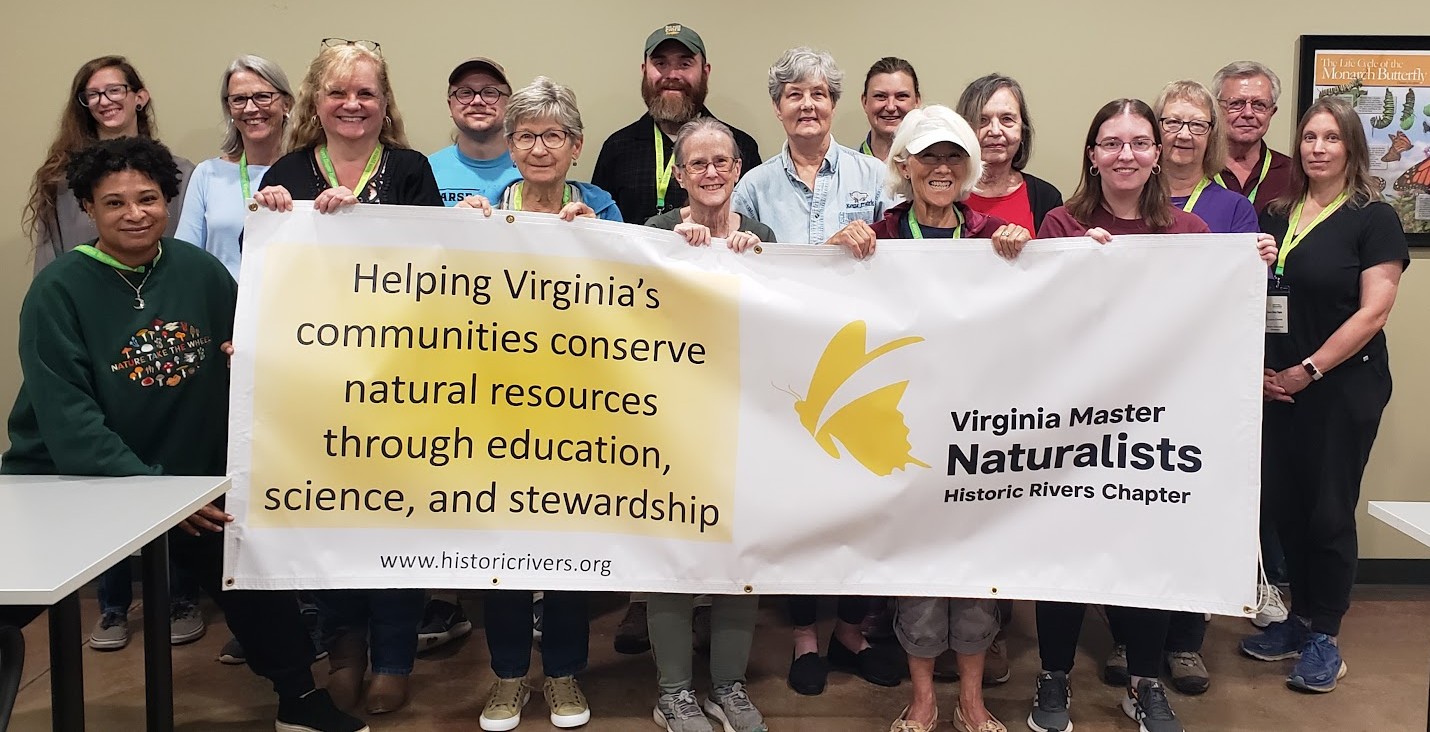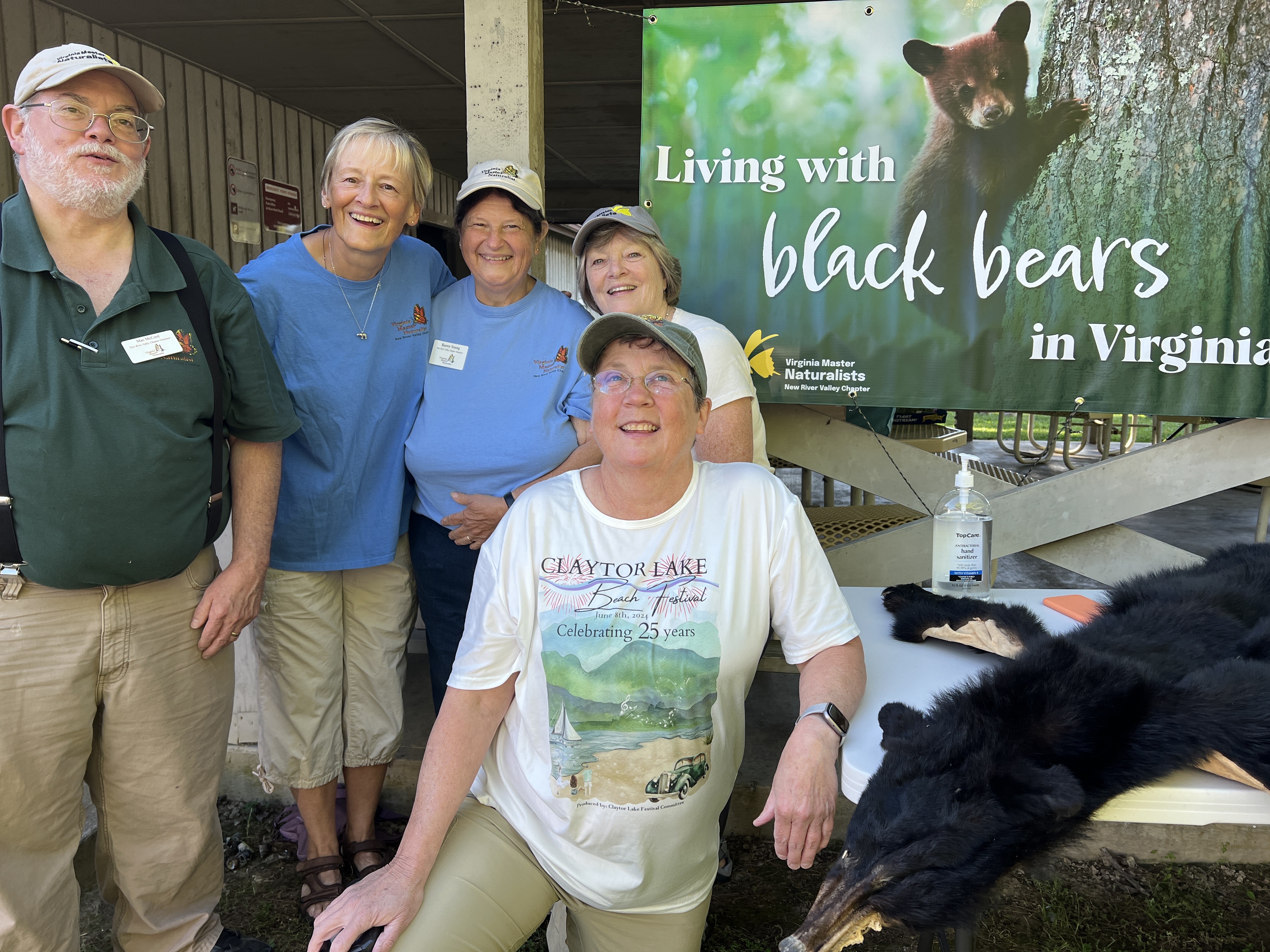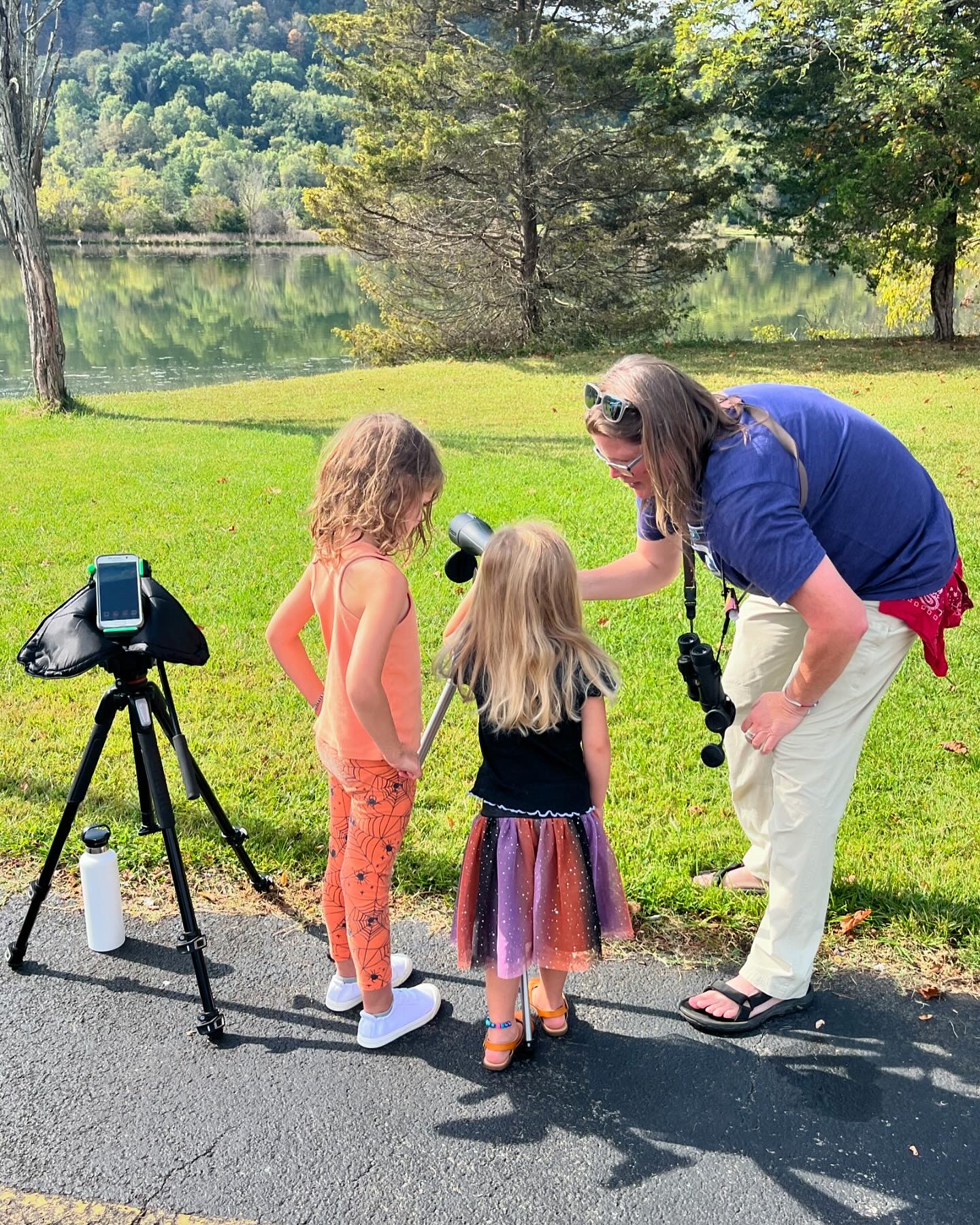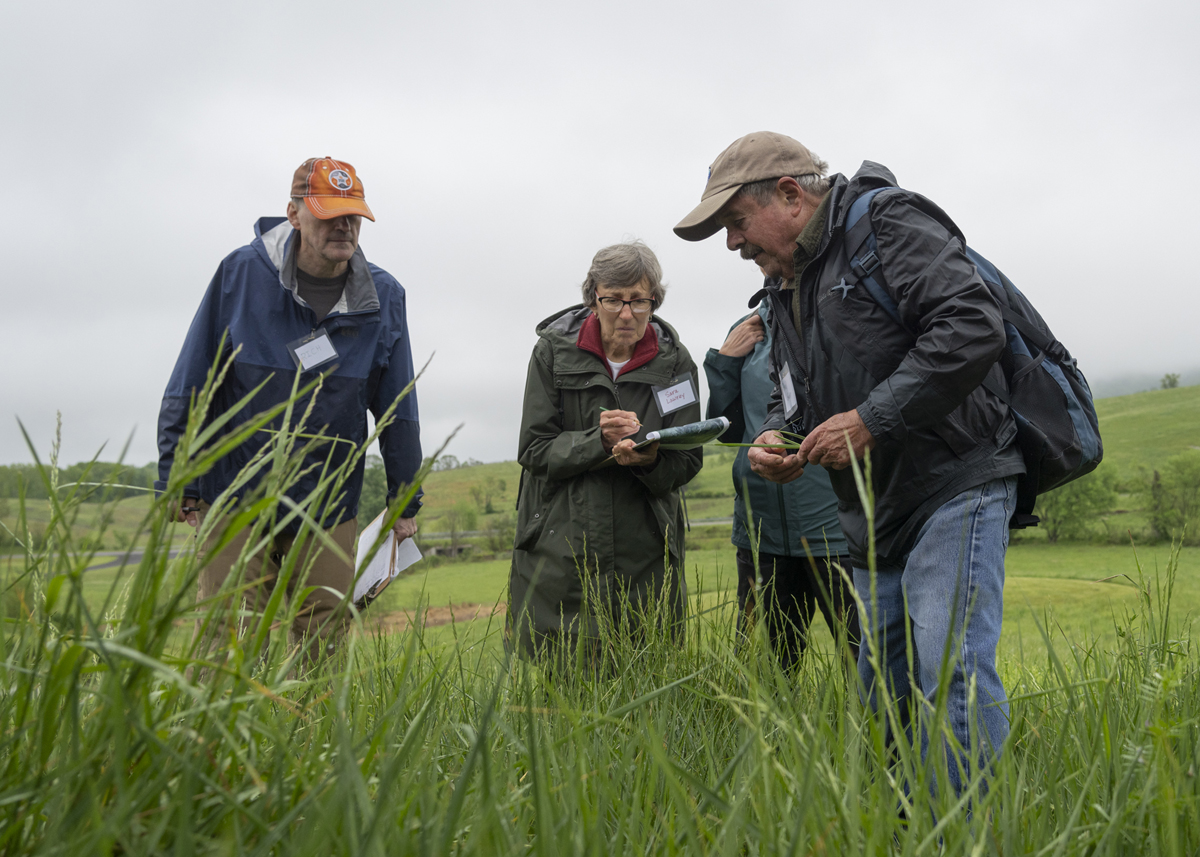
Virginia Master Naturalist Program 2024 Year in Review
Each year, VMN chapter leaders work hard on annual reports that compile their membership and volunteering statistics and describe some of their most impactful projects from the year. It’s exciting for us to hear about their accomplishments, and it is clear that Virginia Master Naturalist volunteers are continuing to make important impacts in their communities and to benefit Virginia’s waters, woods, and wildlife.
Below, we present some of the 2024 data through a table of quantitative outputs and an impact statement that will be submitted to Virginia Cooperative Extension and other sponsors. To learn about more stories of volunteers and their projects, check out our 2024 VMN Program Awards announcement.
2024 Virginia Master Naturalists By the Numbers
2024 | |
| New Basic Training Graduates | 498 |
| Total Enrolled VMN Volunteers | 3,481 |
| VMN Volunteers Reporting Service Hours | 2,892 |
| VMNs Certified or Recertified for 2025 | 1,631 |
| Continuing Education Hours | 31,798 |
| Service Hours: Education and Outreach | 55,387 |
| Service Hours: Science | 84,823 |
| Service Hours: Stewardship | 66,184 |
| Service Hours: Chapter Leadership | 43,649 |
| Total Service Hours | 250,043 |
| Monetary Value of Service | $8.35 M |
| Sites Improved Through Stewardship | 821 |
| Number of New Habitat Sites Planted or Restored | 32 |
| Number of Direct Educational Contacts Made | 482,326 |
| Number of Indirect Educational Contacts Made | 374,067 |
| Number of Participatory Science Studies Supported | 65+ |
2024 Virginia Master Naturalists contribute to natural resource education, citizen science, and stewardship across the Commonwealth
Relevance
Virginia faces difficult natural resource challenges, such as loss of forestland, impacts of invasive species, pollution of our waterways, and disconnection between people and nature. State and local natural resource agencies need help to address these challenges, and public engagement is critical to their success. At the same time, individual Virginians need opportunities to be actively involved in exploring, caring for, and observing nature in their local communities, both for their own health and wellbeing and for the health of our natural resources. Furthermore, because the most impactful experiences in nature are deeply social, opportunities to connect people with nature through social groups are needed.
Response
The Virginia Master Naturalist (VMN) program addresses these needs by supporting a statewide corps of volunteers providing education, outreach, and service dedicated to the beneficial management of natural resources and natural areas within their communities. With 30 chapters across Virginia, the program aims to extend the capacities of state and local natural resource organizations to achieve their missions in new ways, engage new audiences, and work towards creating a citizenry more informed about and involved in natural resource conservation and management. The program, because of its chapter-based structure, also promotes learning about, exploring, and stewarding natural areas through social groups.
In 2024, the program grew to 3,481 enrolled volunteers. VMN chapters offered 35 basic training courses, resulting in 498 newly trained volunteers joining the ranks. Together, VMN volunteers reported more than 251,000 hours of service in Virginia, valued at $8.3 million. More than 1,600 volunteers earned the Certified Virginia Master Naturalist title by completing at least 40 hours of service and 8 hours of continuing education. Since the program’s inception in 2005, more than 7,800 individuals have become trained VMN volunteers, and those volunteers have contributed more than 2.3 million hours of service with a value of $65.6 million to the Commonwealth of Virginia.
Partnerships are a cornerstone of the program, and most VMN activities are conducted in collaboration with other organizations. In 2024, VMN chapters partnered with 500 different agencies, localities, and organizations across Virginia to accomplish shared conservation and education goals. At the statewide level, seven state agencies continued to sponsor and support the program and its volunteers.

Results
Overview
Volunteer service hours were completed in four primary areas: education and outreach (55,387 hours; $1.85 million value), stewardship (66,184 hours at more than 700 sites, $2.21 million value), participatory science (84,823 hours on more than 75 studies, $2.83 million), and chapter leadership (43,649 hours, $1.46 million). VMN volunteer contributions in each of these areas resulted in positive impacts, such as restored habitats, new data for use in wildlife and land management, and more Virginians getting connected to nature.
Three noteworthy areas in which VMN volunteers made a difference in 2024 were providing education to reduce human-bear conflict, increasing opportunities for Virginians to experience and learn about nature, and collecting data on wildlife populations.
Living with Black Bears
As Virginia’s black bear population has increased across much of the state, the number of bear-related calls to the Virginia Department of Wildlife Resource (DWR) wildlife conflict hotline have increased as well. Three quarters of the calls relate to conflicts caused by human-provided food in the form of trash or bird feeders. In partnership with DWR, trained Virginia Master Naturalist volunteers provided information to Virginians about how to reduce human-bear conflicts by adopting new behaviors at their homes. In 2024, VMN volunteers gave 50 “Living with Black Bears” presentations to community groups and provided similar information through tabling at 48 community events, making more than 20,000 contacts. Pre and post evaluation results from the presentations show an increase in attendees’ perceived knowledge about bears (27% of participants rated their knowledge as “a fair amount” or “a lot” before the presentation, compared to 54% after) and an increased likelihood to adopt some new behaviors (e.g., percentage of participants planning to take down birdfeeders while bears are active increased from 12% pre to 21% post.) DWR sees this project as so successful that they are incorporating it into future updates of Virginia’s Bear Management Plan.

Increasing Experiential Outdoor Education Opportunities
VMN volunteers serve as guides to connect people to the natural spaces and resources in their communities. Due to facilitation by VMN volunteers in 2024, people had new opportunities to learn about nature from knowledgeable leaders and to spend guided time outdoors. VMN volunteers were the lead organizers of at least seven different nature-themed community festivals, including a pawpaw festival in Newport News, bird festivals in Abingdon and Powhatan, a naturalist rally in Pound, and an outdoor film event in Clarke County. Volunteers led outdoor interpretive programs at a wide variety of publicly accessible locations, from urban neighborhoods in Arlington to rural trails in Wise. Together, these events and programs drew thousands of participants who explored parks, learned wildlife observation skills, experienced the benefits of time and nature, and got connected to other community members.

Providing Date on Wildlife for Research and Management
VMN volunteers contributed to dozens of different wildlife-focused participatory science projects, including studies of bats, birds, butterflies, reptiles, freshwater fish, and amphibians. These studies provide data used to answer scientific research questions and to make management decisions. For example, results of an inventory of diamondback terrapin nest sites in Machicomoco State Park by VMN volunteers led the park to manage more areas to remain in the open, early successional habitat preferred by the turtles, which are designated as Very High Conservation Need in Virginia’s Wildlife Action Plan. In another example, researchers are using the extensive database of vernal pool surveys by VMN volunteers to study new methods of detecting these temporary wetland habitats and to study population trends in amphibians that depend on them. In surveys of bat populations using echolocation recording devices, VMN volunteers documented some of the remaining pockets of bat species severely affected by white-nosed syndrome. Through the Virginia Working Landscapes project with the Smithsonian Conservation Biology Institute, VMN volunteers monitored grassland bird, pollinator, and plant diversity in Virginia’s Northern Piedmont. Their data are informing the development of best management practices and helping private landowners understand the value of biodiversity and conservation-focused land management.
